The A-Z Of Quentin Tarantino
The essential guide to the biggest film geek of all
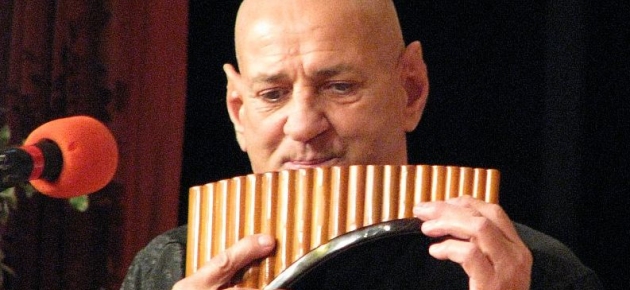
is for Zamfir
Gheorghe Zamfir, whose track ‘The Lonely Shepherd’ appears on the Kill Bill Vol. 1 soundtrack.
He’s known as ‘The Master of the Pan Flute’, and that’s very much evident in ‘Shepherd’. It’s all trilling panpipes, swaying strings and moody trumpets.
While it sounds a little like one of those ambient songs you’d find on a Chill Out Zone CD, we love it – not least because it played in the film during The Bride’s fateful airplane trip to the other side of the world.
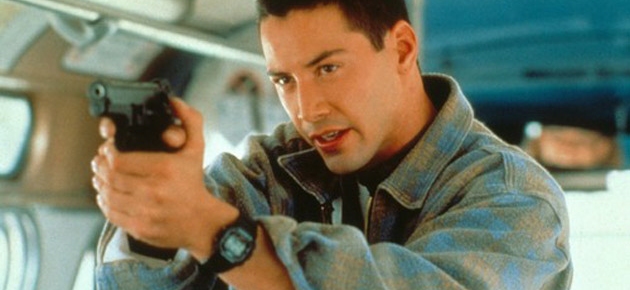
is for (Not Saying) Yes
It could have all turned out very differently for Quentin Tarantino.
After causing a storm with Reservoir Dogs , the young director was offered numerous projects, including Speed and Men In Black .
Instead, Quent skipped town and headed to Amsterdam where he concentrated on scripting Pulp Fiction . Thank goodness. Though, a Tarantino Speed ? Now that’s something we’d like to see one day.
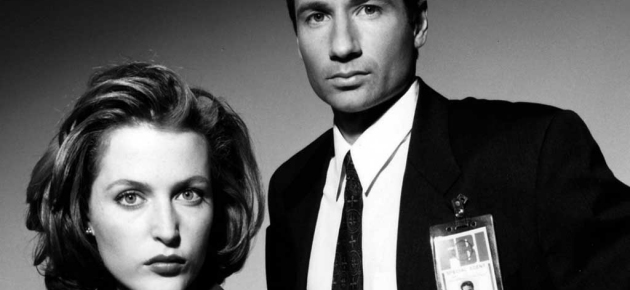
is for X-Files
It was clear that Tarantino had really hit the big time in 1997, when an episode of The X-Files – then the biggest show on the planet – was written specifically for him to direct.
‘Never Again’ was scripted by Glen Morgan and James Wong, the show’s biggest assets, and had Scully heading to Philadelphia where she meets a man who says his tattoo is talking to him.
Sadly, Tarantino was prevented from directing the episode by the Directors Guild of America, who claimed that he still owed them money from when he helmed an episode of ER .
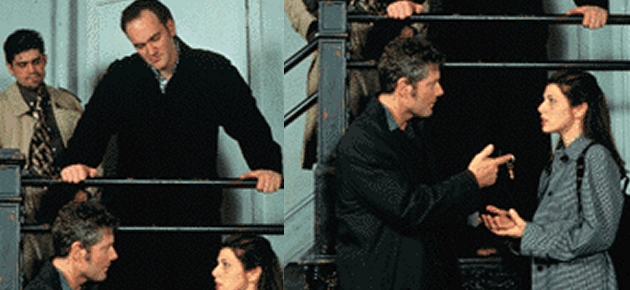
is for Wait Until Dark
Aka Tarantino’s foray into stage acting. The director/writer/actor/genius took to the boards in April 1998 to star in the revival of Wait Until Dark at Brooks Atkinson Theatre on Broadway.
Tarantino played Harry Roat, a criminal mastermind who’s hidden drugs in a doll that has just gone missing. Marisa Tomei, in her stage debut, played a woman whose apartment the doll turns up in.
The play’s brutal murder scene is pure Tarantino - we're sure he had a hand in directing that bit.
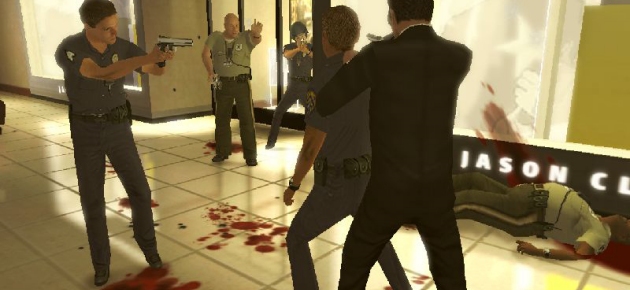
is for Video Games
In 2006 , Reservoir Dogs was released in video game form, and promptly banned in Australia. The game was refused classification, because the Classification Board couldn’t find a way to issue it with a MA 15+ rating.
That means it’s unavailable to buy in the country, though it’s not illegal to import it from another country. The Board’s official verdict? The game “tends to promote and support the infliction of extreme violence and extreme cruelty…for the purpose of entertainment”.
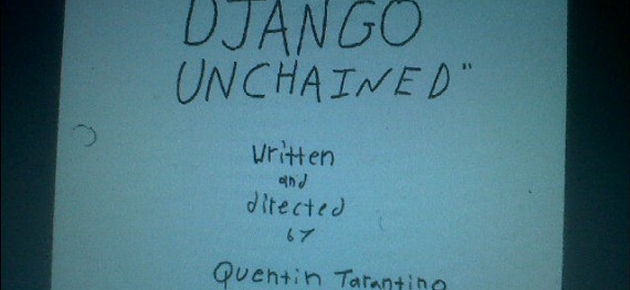
is for Unchained
As in Django Unchained . Having taken on crime dramas, martial arts movies and war epics, Tarantinio’s hopped genres again to make this dusty Western.
Except he called it a ‘Southern’, because Django transplants Western tropes to the deep south, where Leonardo DiCaprio’s antagonist enslaves Jamie Foxx’s Django.
“I want to do movies that deal with America's horrible past with slavery and stuff but do them like spaghetti westerns, not like big issue movies,” the director says.
“I want to do them like they're genre films, but they deal with everything that America has never dealt with because it's ashamed of it. But I can deal with it all right, and I'm the guy to do it."
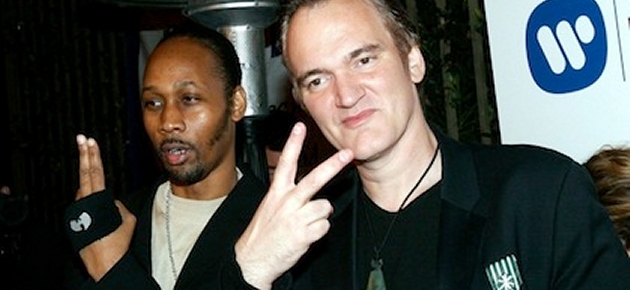
is for The Man With The Iron Fists
Producing again, Tarantino lent his name to The Man With The Iron Fists , the directorial debut of hip hop artist RZA (who, incidentally, was on the Kill Bill Vol. 1 soundtrack).
Says co-producer Eli Roth before the film was released: “This movie will have everything martial arts fans could want, combined with RZA's superb musical talent. This project has been his dream for years, and I'm thrilled to be a part of it. And fans should know that yes, there will be blood... This ain't no PG-13.”
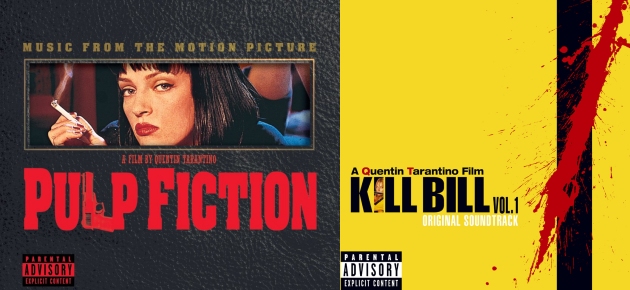
is for Soundtracks
Tarantino is arguably best known for three key things. Dialogue. Violence. And music. The last is a clear passion, the director having carefully cooked some of the most diverse soundtracks ever put together.
His Reservoir Dogs soundtrack set the mould, resurrecting tunes from the 1970s. Pulp Fiction refined the formula. By the time Kill Bill rolled around, Tarantino was a pro, mixing old classics with little-heard modern fare – and even sound bites from Ironside .
Tarantino turned the movie soundtrack into an artform in its own right.
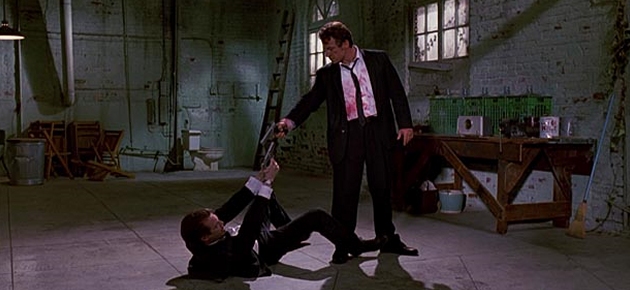
is for Reservoir Dogs
Of course. Tarantino’s 1992 debut, Dogs sent the filmmaker’s profile skyrocketing, and rightfully so. With its confident scripting and memorable characters, it was a twisty crime drama that also knew its audience inside out.
In particular, Quent showed a talent for coming up with instantly iconic imagery, not least that moment when a cop has his ear cut off by Michael Madsen.
The violence may have been difficult to swallow for some, but it was also part of Dogs ’ charm. And then there was the killer music. Which takes us neatly on to our next entry…

is for Queens, New York
The birthplace of Quentin’s father, an actor and fledgling musician. Quentin himself was born in Knoxville, Tennessee, where he was raised by his mother after his parents’ separation.
It wasn’t until he was two years old that they relocated to California, where he’d grow up and eventually get a job at the Video Archives, a video store in Manhattan Beach.
Tarantino credits that job with educating him in the world of movies. “When people ask me if I went to film school I tell them, ‘No, I went to films,’” he says.
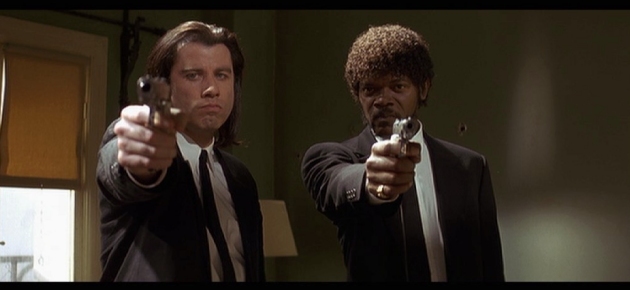
is for Pulp Fiction
Is Pulp Fiction the best film ever made by Quentin Tarantino? Who better to ask than the man himself?
“I go up and down,” the director admits. “For years I said Reservoir Dogs was my best film, then I said that Kill Bill Vol. 2 was my best film.
“I won’t really, truly be able to rank my work until after I retire… talk to me three years after that and I’ll be able to give them to you in complete order.”
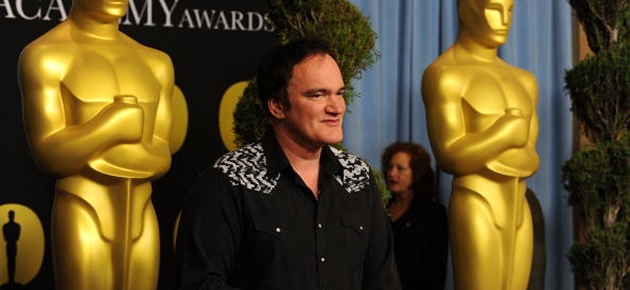
is for Oscars
Prior to Django Unchained , Quent had been nominated for four Oscars, and bagged one for sophomore feature Pulp Fiction in 1995. Though he’s yet to nab the big one (Best Director), Fiction at least earned him the Best Writing statuette.
At the time of Inglourious Basterds ’ nominations, Tarantino said of the acclaim: “It’s like this. I was always talked about for my first two films like I was some sort of flash in the pan. But then I went from flavour of the month, to flavour of the year, to flavour of the decade.
“Now, at the end of two decades in the business, well maybe I’m not the flavour of anything. I am here to stay.”
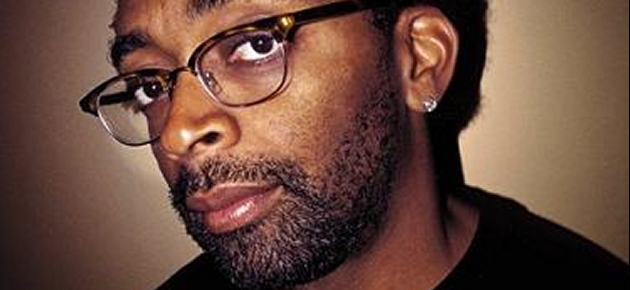
is for The N Word
Spike Lee and Quentin Tarantino locked horns over the thorny matter of racial epithets in 2008. Lee challenged Tarantino’s use of the ‘N’ word in so many of his movies.
“I'm not against the word,” Lee told Variety , “and I use it, but Quentin is infatuated with the word. What does he want? To be made an honorary black man?”
Tarantino responded with typical frankness. “To say that I can't do that because I'm white, but the Hughes brothers can do that because they're black, that is racist. That is the heart of racism, alright. And I do not accept that.”
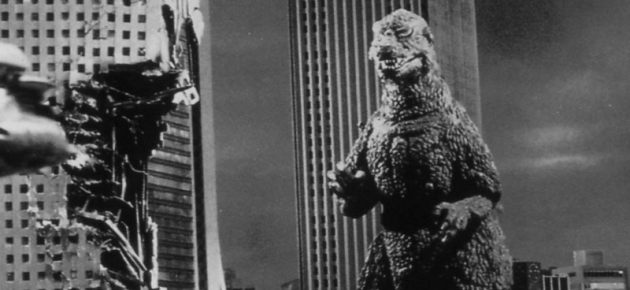
is for Monster Movie
He’s never made a monster movie, but Tarantino knows exactly what he’d do if he did. Not surprising, considering his obsession with all things Eastern, he’d want to take on that most famous of giant lizards.
“I have an idea for a Godzilla movie that I've always wanted to do,” he says. “The whole idea of Godzilla's role in Tokyo, where he's always battling these other monsters, saving humanity time and again - wouldn't Godzilla become God?
“It would be called Living Under The Rule Of Godzilla . This is what society is like when a big fucking green lizard rules your world.”
Shame Gareth Edwards beat him to it.
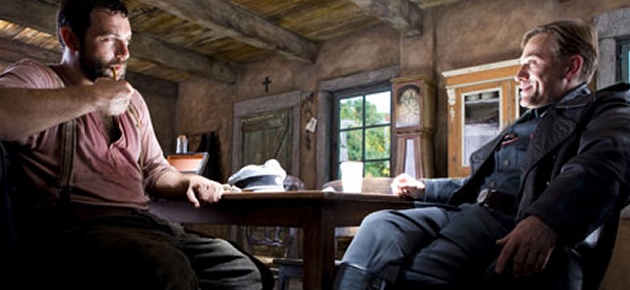
is for Landa
Colonel Hans Landa to be more precise. Perfectly played by then-unknown Christoph Waltz, the Nazi menace opens Inglourious Basterds brilliantly, and is easily one of the best big screen villains ever created.
Even Tarantino knew he had something good: “I knew Landa was one of the best characters I’ve ever written and probably one of the best characters I will ever write.”
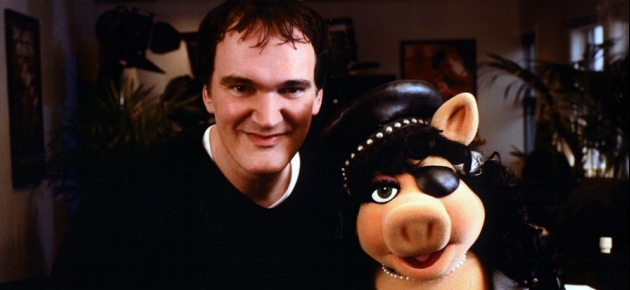
is for Kermit The Frog
Tarantino made an appearance (as himself) in 2005’s Muppets’ Wizard Of Oz . He terrifies movie exec Kermit the Frog with his passionate proposition for a violent rethink of the fairytale.
“Just as Dorothy and the Wicked Witch charge at each other, BAM! Blow out fight scene!” the director yells.
“The gals whip out these huge samurai swords” - Tarantino whips out a sword - “I’m talkin’ Kung Fu! I’m talkin’ walking on walls! I’m talkin’ explosions everywhere! You diggin’ it?”
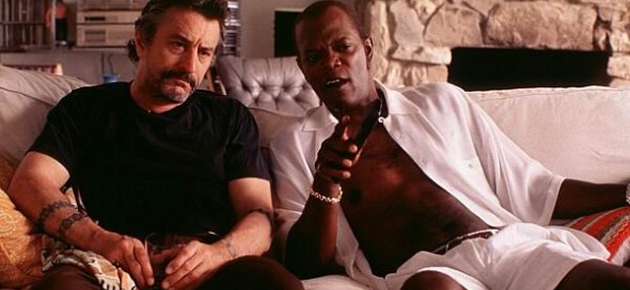
is for Jackie Brown
Tarantino’s third feature film and an adaptation of Elmore Leonard’s novel Rum Punch . By now, Tarantino had built up such a reputation that he was able to put together one of the coolest casts ever - Pam Grier, Robert Forster, Robert De Niro, Samuel L. Jackson, Bridget Fonda and Michael Keaton.
Though it wasn’t as well-received as Pulp Fiction , Jackie Brown was a tour-de-force of style matched with genuine guts. It also earned pretty much everybody involved award nominations of one kind or another. Not bad.
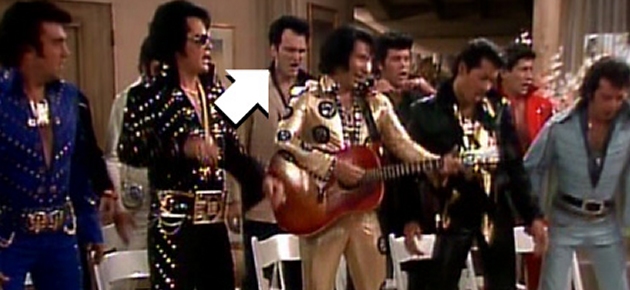
is for Impersonator
Elvis impersonator, to be more precise, which is a character that Tarantino played in a season four episode of The Golden Girls .
The episode, ‘Sophia’s Wedding Part 1’, aired in November 1988, and had Rose and Blanch creating their own Elvis fan club. But invitations for Sophia’s wedding are sent to the impersonators, who become the wedding’s only guests.
“It was kind of a high point,” recalls Quent, “because it was one of the few times that I actually got hired for a job.
“All the other Elvis impersonators wore Vegas-style jumpsuits. But I wore my own clothes, because I was, like, the Sun Records Elvis. I was the hillbilly cat Elvis. I was the real Elvis; everyone else was Elvis after he sold out.”
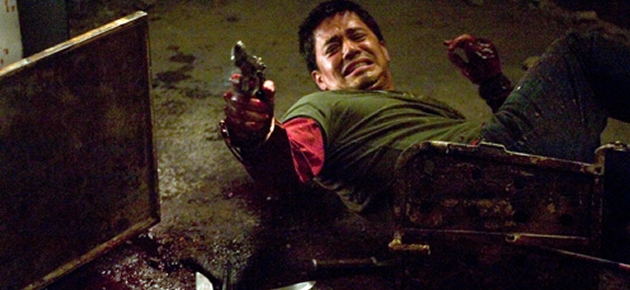
is for Hostel
Tarantino was pivotal in film’s sudden obsession with torture porn. How so? Well, he was responsible for helping fledgling director Eli Roth get his script onto the big screen in 2005.
Quent scrubbed up Roth’s Hostel script and even signed on as producer. He thought he’d found something big.
“He’s what horror films have been waiting for,” Tarantino said of Roth. “[ He’s ] not a video director trying to make his first movie and then move on, or the older guy who resents the fact that he’s still doing horror films. Eli wants to make horror films.”
Hostel was panned by critics on release, but embraced by horror fans, ensuring that torture porn was here to stay.
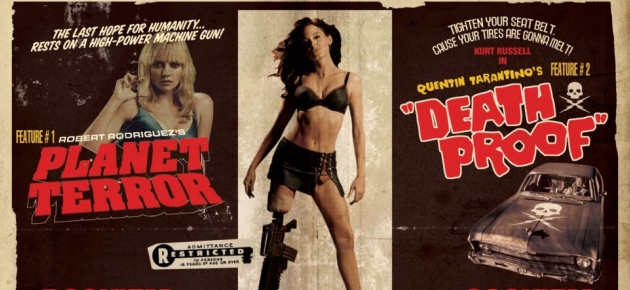
is for Grindhouse
Together with buddy Rodriguez, Tarantino crafted a gritty, grubby celluloid love letter to the exploitation cinema of the 1970s. In 2007, the pair made their own double-bill Grindhouse tributes – Quent’s was Death Proof , Rod’s was Planet Terror.
“I realised I'd never really done an exploitation movie before,” Quent says. “Even though we spent a lot of time shooting it, I couldn't help thinking, ‘What if I was doing this in 1977, on a 20-day schedule?’
“It started reminding me of the kind of movies I could imagine I would have made back in the '70s.”
It was an experiment that delighted in-the-know film buffs, but puzzled everybody else. An in-joke built purposefully for the fans? Surely not!
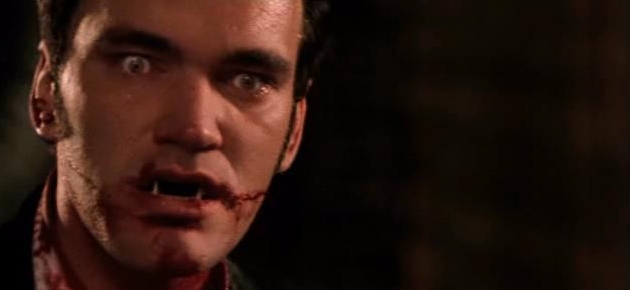
is for From Dusk Till Dawn
Tarantino’s first proper collaboration with Robert Rodriguez, and a vampire movie starring George Clooney to boot.
The film also reunited Quent with Reservoir Dogs alumnus Harvey Keitel, and cleverly plays with road movie tropes before unveiling the bloodsuckers.
Needless to say Tarantiino and Rodriguez weren't involved in any of the DTV sequels.
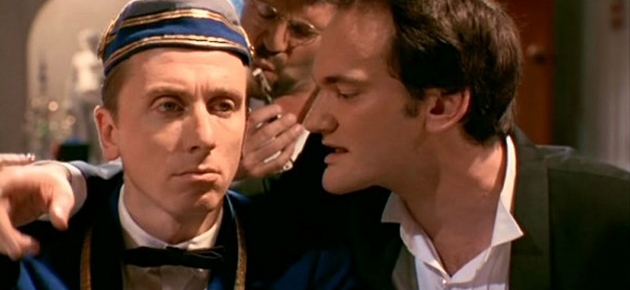
is for Episode Four
Anthology film Four Rooms had Tarantino filming one of the movie's standalone segments. His was Episode Four, ‘The Man From Hollywood’, which was a nod to a Steve McQueen-starring episode of Alfred Hitchcock Presents .
Sadly, the film didn’t do well with critics, or audiences. It’s currently only 14% fresh on Rotten Tomatoes, and represents Quent’s first proper dud.
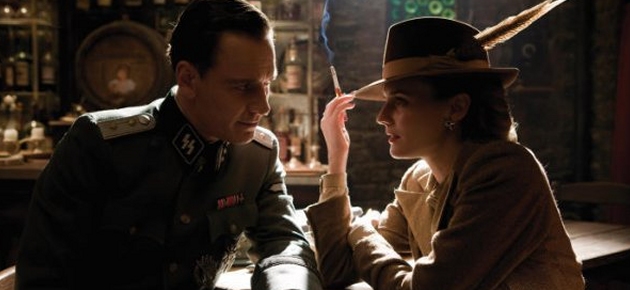
is for Dialogue
Kevin Smith summed it up nice and succinctly. Talking about seeing a Tarantino flick for the first time, he hollered: “That counts?!”
He was referring, of course, to Reservoir Dogs ' iconic dialogue – stream of consciousness discussions that felt like everyday conversations, albeit busting with pop culture references and witty putdowns. Nobody writes it like Quent.
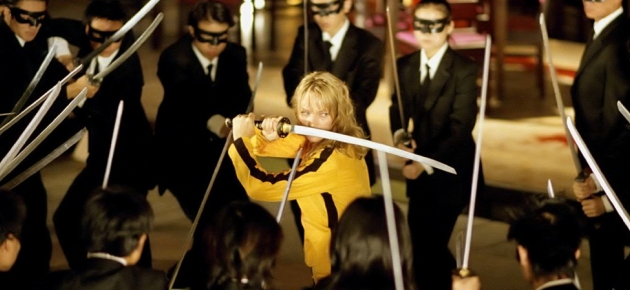
is for Crazy 88s
Kill Bill Vol. 1 ’s knockout central fight scene had Uma Thurman sparring with blade-wielding bodyguards known as the Crazy 88s (though apparently there aren’t actually 88 of them).
The sequence was deemed so violent that the MPAA only allowed it to go untrimmed when Tarantino turned the sequence black and white. The device worked perfectly, and the intact fight sequence is a bloody gem.
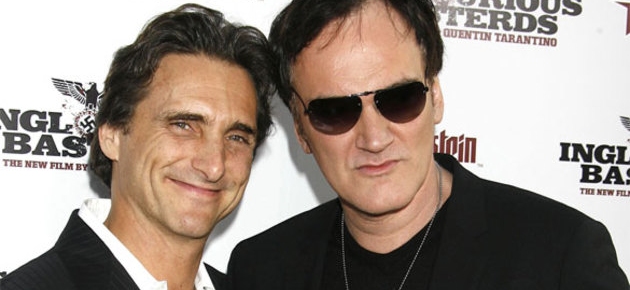
is for Bender
Lawrence Bender, that is, to clear up any confusion.
Tarantino’s right-hand man, Bender has produced every one of the filmmaker’s celluloid masterpieces from the very beginning. They met at a barbecue in 1989, and quickly realised that they had to work together.
“We got excited with each other,” Bender recalls. “We were both struggling. We were both outsiders. We both were trying to fight our way into the system. And we just starting talking about, ‘Let’s make a movie together.’” The rest is history.
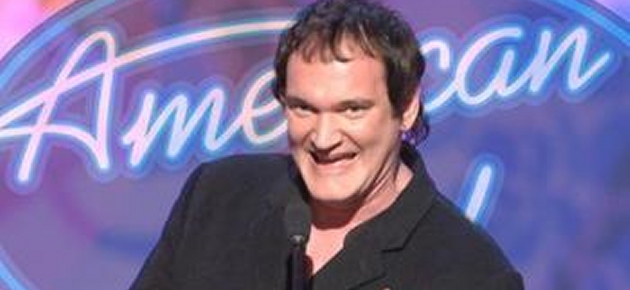
is for American Idol
While Quentin Tarantino is beyond any reasonable doubt an American idol, we’re actually talking about the TV show. Yes, the colourful karaoke headache that is the search for America’s next best singer.
Tarantino made a guest appearance on the show to ‘direct’ the final seven competitors. His encouragement that contestant Anoop Desai “kill” Bryan Adams’ ‘Everything I Do’ was a particular highlight.
Like Stephen Fry and Ian McKellen dabblings in pop culture, Tarantino’s appearance on Idol wasn’t just a nod-wink joke – it was a sign of his love for all kinds of culture. No matter how glitzy.
Josh Winning has worn a lot of hats over the years. Contributing Editor at Total Film, writer for SFX, and senior film writer at the Radio Times. Josh has also penned a novel about mysteries and monsters, is the co-host of a movie podcast, and has a library of pretty phenomenal stories from visiting some of the biggest TV and film sets in the world. He would also like you to know that he "lives for cat videos..." Don't we all, Josh. Don't we all.


